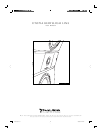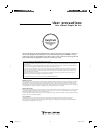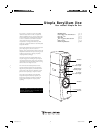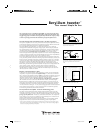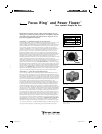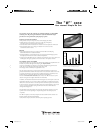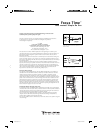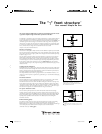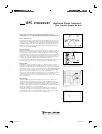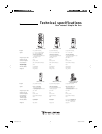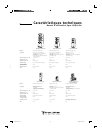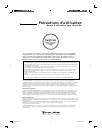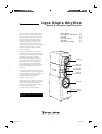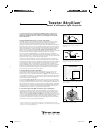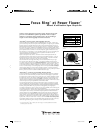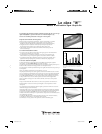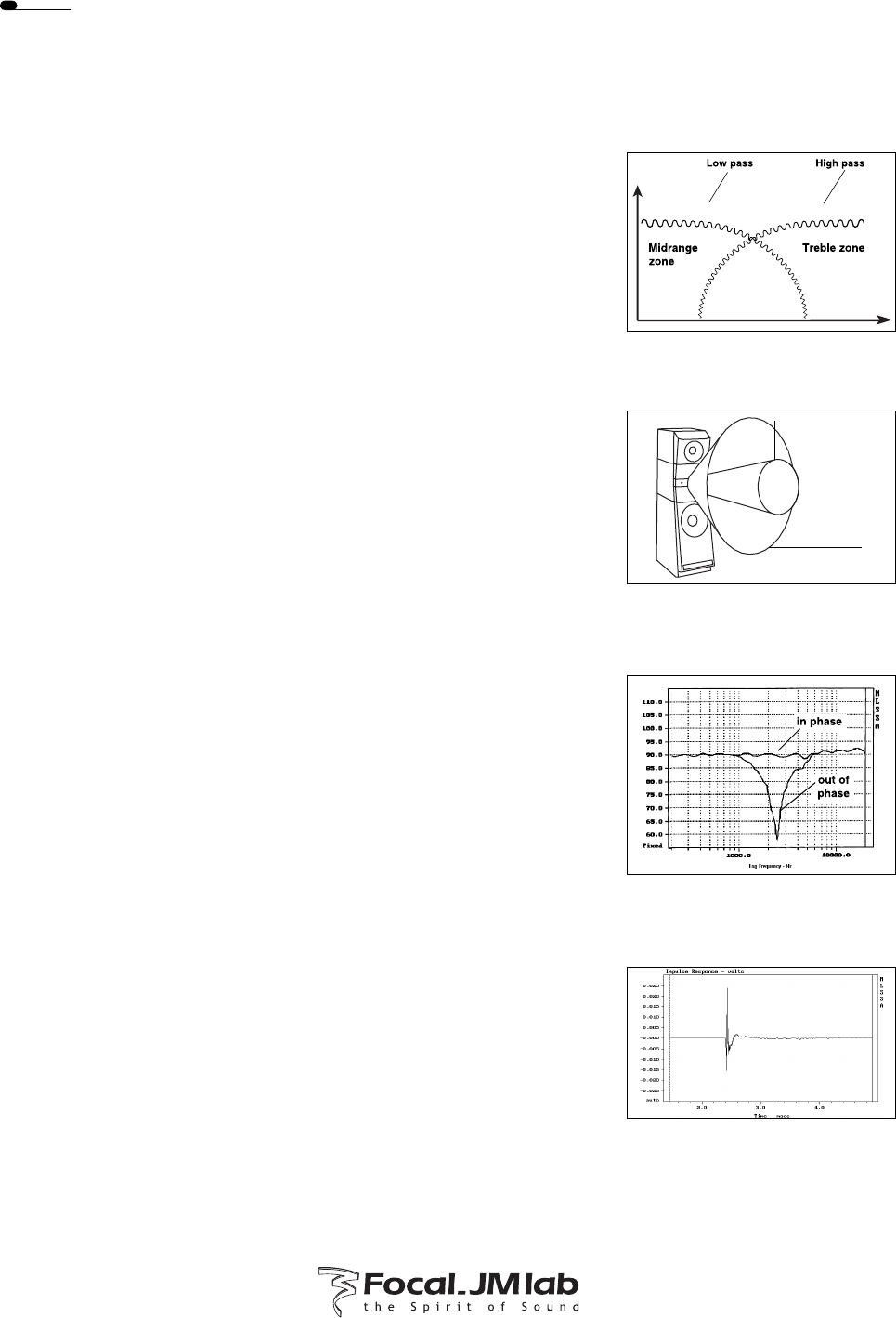
The role of the Crossover
The crossover has the function of distributing the signal from the amplifier to the various drive units
in a loudspeaker: bass, midrange and treble. The most critical area of filtering this signal, with out
any doubt, is between the midrange and treble. A low-pass filter rolls off the higher frequencies of
the midrange. A high-pass filter rolls off the low frequencies from the tweeter. This crossover point
generally occurs in the region between 2-5kHz. This underlines a fundamental point in terms of
realistic sound reproduction: “directivity”.
Mastering Directivity
The diameter of a drive unit designed to reproduce midrange frequencies is generally between 130
and 170mm. These dimensions correspond to a frequency of between 2 and 2.6kHz. The directivity,
meaning the angle over which a drive unit will radiate its energy, reduces as frequency increases.
For frequencies where the wavelength is smaller than the diameter of the cone, the sound becomes
very directional. This means that the sound will be radiated in an increasingly narrow beam. As a
consequence, the acoustic power radiated from the loudspeaker is not evenly balanced, principle
criterion for the reproduction of a realistic image over a three dimensional space.
Here our inverted dome tweeter offers a unique advantage in that its design and conception allow it
work down to frequencies sufficiently low enough to avoid the effects of midrange beaming.
Mastering Phase
In addition to the constraints imposed on the tweeter at low frequencies, there is also another very
critical aspect: the phase behavior of the loudspeaker and crossover combination in this critical
region. The ear and the auditive system are extremely sensitive in the zone 2-2.5kHz. The midrange
drive unit and its crossover must display an amplitude response that is “the exact mirror image” of
that of the tweeter and its crossover. For this criterion to be met, the phase between the midrange
and tweeter must be perfectly matched for the two to overlap and sum perfectly and
create a balanced tonality. The difference in phase between the tweeter and midrange at the crosso-
ver point must be zero. Thus, there is total summation between the two emission sources
at the crossover frequency. Out of phase, the loudspeaker should show a very deep and symmetrical
hole in the response curve.
OPC Technology
These aforementioned steps form the basis of OPC technology. However, it would be naive to
think that this ideal could be reached simply through an extensive development of crossover
technology. It is necessary to have total control over the response and performance of the transducers
themselves, as is only possible for a few manufacturers who develop their own drive units as
Focal-JMlab: a specific drive unit is developed for each individual type of product. It's unrealistic to
think that a mechanical deffect can be corrected electricaly.
With the OPC technology, we use an acoustic roll-off of 36dB/Octave for the slopes between
midrange and tweeter along with a perfectly aligned phase. This translates into a sound that is
extremely coherent and with a natural timbre. Imaging is extremely precise and at the same time
dispersion wide so that the result can be enjoyed over a wide listening area.
The crossover is a key element in the design of a loudspeaker. Its role and
its development are very complicated, the personality of a loudspeaker depends on it.
The high and low pass crossover sections “calibrate” the electrical signal
perfectly optimizing the range of frequencies passed to each drive unit.
Frequency response in and out of phase. The Grande Utopia shows a
perfectly symmetrical cancellation out of phase indicating a perfect
optimization of phase.
A bass-mid drive unit will radiate sound in an increasingly directional manner
as frequency increases. It becomes more directive. Therefore the crossover
should introduce the tweeter before this phenomena starts to take effect.
5 000Hz
2 500Hz
The OPC crossover offers a remarkable impulse response, even on a 4-way
loudspeaker like the Grande Utopia Be.
OPC crossover
™
(Optimum Phase Crossover)
User manual Utopia Be line
9
notice utopia be 9 19/04/04, 15:32:44



